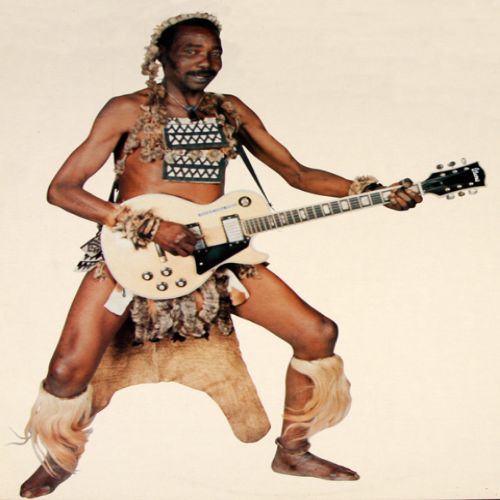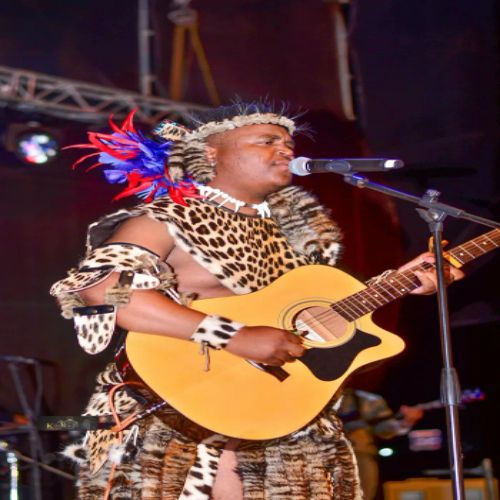
Maskandi Music’s Role in Preserving Zulu Culture.
Maskandi music, a traditional genre deeply rooted in the heart of KwaZulu-Natal, is more than just a musical style — it is a cultural archive, a form of storytelling, and a living symbol of Zulu identity. Often described as the “music of the Zulu heart,” Maskandi (sometimes spelled “Maskanda”) plays a pivotal role in preserving the language, customs, and traditional values of the Zulu people.
As South Africa’s musical landscape continues to evolve with global influences, Maskandi music remains a powerful guardian of heritage, carrying the legacy of ancestors into the future.
What is Maskandi Music?
Maskandi originated among rural Zulu communities and was traditionally played by migrant workers who used music to express their thoughts, homesickness, and life struggles. Characterized by fast-paced guitar picking, deep lyrical storytelling, and rhythmic Zulu vocals, the genre reflects daily life, politics, social justice, love, and spirituality.
Its distinct blend of Zulu folk storytelling, indigenous instrumentation (notably the guitar and concertina), and traditional attire makes it one of South Africa’s most authentic musical genres.

Promoting the Zulu Language Through Lyrics
One of the most critical roles that Maskandi plays is the preservation of the Zulu language (isiZulu). In an era where Western and urban slang dominate youth culture, Maskandi songs continue to be delivered in pure isiZulu, often using poetic forms, proverbs, and idioms that pass down traditional wisdom.
ALSO READ: The Evolution of Hip-Hop: From the Streets to Mainstream
Artists like Phuzekhemisi, Ihashi Elimhlophe, Bhekumuzi Luthuli, and Imithente have released hit songs that not only entertain but educate listeners on Zulu history, values, and cultural nuances. These songs become both musical records and linguistic repositories.
Telling Stories of Zulu Heritage and Traditions
Maskandi is storytelling through song. Each track carries a narrative deeply embedded in traditional customs, whether it’s about initiation ceremonies, marriage practices, respect for elders, or ancestral beliefs. Through these lyrical stories, younger generations are introduced to rituals and social norms that define Zulu identity.
Live performances, especially at cultural festivals and rural events, often include dancers and performers dressed in traditional attire, further reinforcing Zulu customs visually and rhythmically.
Bridging Generations: From Elders to the Youth
While some may view Maskandi as old-fashioned or rural, the genre is undergoing a powerful resurgence among younger audiences. Rising stars like Khuzani Mpungose and Mthandeni “Igcokama Elisha” Manqele have modernized the sound without compromising its cultural essence.
Through social media and streaming platforms, these artists are reaching urban youth, turning Maskandi into a vibrant and evolving tradition. This new wave bridges generations and ensures that Zulu pride and heritage are not lost in translation.

Maskandi on the Global Stage
In recent years, Maskandi music has been featured in international festivals and academic studies, drawing attention to South Africa’s rich musical diversity. Tourists who visit KwaZulu-Natal often experience Maskandi as part of cultural excursions, turning it into an ambassador for Zulu culture.
Efforts by cultural institutions to archive, fund, and promote Maskandi performances also show a growing appreciation for its global cultural value.
Challenges to the Genre’s Survival
Despite its cultural importance, Maskandi faces several challenges:
- Commercial underrepresentation in mainstream media.
- Lack of digital promotion compared to pop and amapiano genres.
- Generational gaps, as some youth gravitate toward modern sounds.
However, community radio stations, dedicated festivals like Maskandi Festival Durban, and online platforms are helping to keep the genre alive and evolving.
Why Maskandi is a Cultural Treasure
In a time of rapid globalization, traditional music like Maskandi is essential for cultural resilience. It does not just entertain — it educates, preserves, and connects people to their roots.
ALSO READ: DJ Karri Biography: Age, Real Name, Net Worth, and Amapiano Hits
As long as Maskandi continues to echo through villages, towns, and concert halls, the spirit of the Zulu people remains unbroken. The genre serves as a rhythmic heartbeat of identity, reminding us that music is more than sound — it’s memory, legacy, and pride.

Conclusion: More Than Just Music
Maskandi music is not only a genre — it’s a living archive of Zulu history and culture. By embracing and supporting Maskandi artists, South Africans and global audiences alike help safeguard a cultural gem that continues to inspire pride, unity, and generational wisdom.
Whether you’re a fan of traditional tunes or new-age amapiano, there’s always room to appreciate how Maskandi keeps Zulu culture alive through powerful stories, expressive rhythms, and a deep love for identity.







 Kabza De Small – Turbang Best of Amapiano Mix
Kabza De Small – Turbang Best of Amapiano Mix  Kabza De Small – Amaphupho
Kabza De Small – Amaphupho  Mkanya – Ngibuyile
Mkanya – Ngibuyile  Kabza De Small – Bangibona ngizithulele ft. MDU aka TRP
Kabza De Small – Bangibona ngizithulele ft. MDU aka TRP  Locco Musiq – War 1 (Sgidongo) ft. Mender_ZA
Locco Musiq – War 1 (Sgidongo) ft. Mender_ZA  Mr Bique Tunes – Bye Bye Disco 117 ft. THulaganyo SA, MusicalKay, Twoo Kayy & Mpingo De Mdansow
Mr Bique Tunes – Bye Bye Disco 117 ft. THulaganyo SA, MusicalKay, Twoo Kayy & Mpingo De Mdansow  Scotts Maphuma – Kanjan Ka Nje ft. Mellow & Sleazy
Scotts Maphuma – Kanjan Ka Nje ft. Mellow & Sleazy